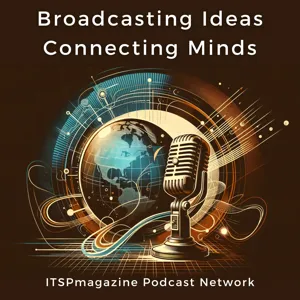Podcast Summary
Use of cluster munitions in Ukraine aid sparks debate: Biden administration's decision to use cluster munitions in Ukraine aid sparks controversy due to potential harm to civilians and long-term risks.
The ongoing military aid to Ukraine from the United States, including the use of cluster munitions, is a contentious issue. While the decision to provide such aid has been largely bipartisan, there are valid concerns raised by Democrats and human rights groups regarding the use of these weapons due to their indiscriminate nature and potential harm to civilians long after the conflict has ended. Cluster bombs, as explained by NPR, release dozens or even hundreds of small bomblets when dropped, many of which may not detonate upon impact and can remain embedded in the ground for years, posing a risk to civilians. The Biden administration argues that the use of these munitions is necessary to counter Russian weaponry, but critics argue that the risks to civilians outweigh the benefits. The administration has pledged to work with Ukraine to remove unexploded shells, but the long-term consequences of using cluster munitions remain a concern. Ultimately, the debate highlights the complexities and moral dilemmas of modern warfare and the need for careful consideration of the potential consequences of military actions.
Debate over cluster munition failure rates: Despite disagreement on failure rates of cluster munitions, their use in heavily bombed countries like Laos demonstrates the potential for significant harm to civilians. Accurate reporting and transparency are crucial in addressing this concern.
The reliability of reported failure rates for cluster munitions is a matter of debate, with some sources claiming rates as low as 2-5%, while others suggest rates as high as 10-30%. While the use of cluster munitions is a topic of concern due to the risk they pose to civilians, particularly in countries like Ukraine that are in desperate need, the history of their use in heavily bombed countries like Laos serves as a stark reminder of the human cost. The United States dropped over 270 million cluster bombs in Laos between 1964 and 1973, a number that underscores the potential harm these weapons can cause. The debate over failure rates highlights the importance of accurate reporting and transparency in the manufacturing and use of such weapons. While efforts are made to mitigate the risk, the human cost of their use remains a significant concern.
US bombing of Laos during Vietnam War: During the Vietnam War, the US dropped 270 million bombs in Laos, causing approximately 200,000 civilian and military deaths and leaving behind dangerous unexploded ordnance for decades
During the Vietnam War, the US dropped an estimated 270 million cluster bombs in Laos over a period of 9 years, which equates to a bombing every 8 minutes. This was an attempt to interdict the Ho Chi Minh Trail and attack the Pathet Lao communist forces. The human toll was devastating, with approximately 200,000 Laotian civilians and military personnel killed, half of whom were young children. The cluster bombs, which look like toys, did not always explode on impact, leaving behind dangerous remnants that often attracted children. This tragic history serves as a reminder of the devastating consequences of war and the importance of ensuring the humane treatment of civilians and the environment.
The human cost of unexploded bombs in Laos: During the Secret War in Laos, civilians suffered greatly from unexploded bombs, with a failure rate of 45% leading to tragic injuries and loss of life
During the Secret War in Laos, the failure rate of bombs not exploding upon impact was approximately 45%. This statistic is hard to grasp, so let's bring it down to a personal level. A traveler visited a village in Laos, home to around 50 people. While there, he met a young boy named Nai, who was missing an arm and an eye. The boy explained that he and other villagers, both children and adults, made a living by digging up unexploded bombs. Tragically, Nai had accidentally detonated one, losing his arm and eye. The other boys in his group also had injuries from similar accidents. The Plain of Jars, a landmark in Laos, was a target for bombings due to the presence of Pathet Lao bases. Despite the small size of the country, Laos experienced the heaviest bombing per capita in history. This encounter illustrates the devastating impact of unexploded bombs on civilians, making it clear that the failure rate of bombs not detonating upon impact was a major issue during the Secret War in Laos.
Long-term consequences of cluster bomb usage: Cluster bombs have long-term consequences, including extensive human toll and cleanup efforts that can take decades or longer, as seen in Laos. Policymakers should prioritize minimizing their use and impact.
The use of cluster bombs in war zones, such as in Ukraine and Laos, can result in long-term consequences that far outlast the conflict itself. Despite promises to clean up unexploded ordnance after the fighting ends, the process can take decades, if not a century or more. The Biden administration's argument that cluster bombs should be seen as a bridge to more conventional artillery production in Ukraine may make sense in theory, but history, as shown in Laos, suggests that the reality can be much more complex and challenging. The human toll and the resources required for cleanup efforts can be immense, and the long-term impact on communities and the environment can be devastating. It's essential for policymakers, governments, and the public to be aware of these realities and to prioritize efforts to minimize the use and impact of such weapons.
The ongoing conflict between Russia and Ukraine and its impact on portfolios: The White House argues that the war in Ukraine poses risks beyond civilians, and comparisons to the Vietnam War highlight the potential consequences of prolonging conflict. Stay informed on policy changes and consider the impact on portfolios.
The ongoing conflict between Russia and Ukraine has been a complex and unpredictable situation for all involved. When Putin invaded Ukraine, he may not have anticipated the challenges he would face a year later. The White House argues that the greater risk is not just to civilians, but that the war continues and Russia continues to pour resources into it. This brings up comparisons to the Vietnam War, where a limited commitment may make sense in the long run due to the aversion of many peoples to foreign troops on their land. However, the risk of prolonging the war carries its own dangers. It's important to remember that every decision made in Washington can impact portfolios, and investors should stay informed on policy changes. Inflation is also a concern, and Mint Mobile offers premium wireless plans starting at just $15 a month. During election season, NPR provides in-depth coverage and analysis to help voters make informed decisions.






